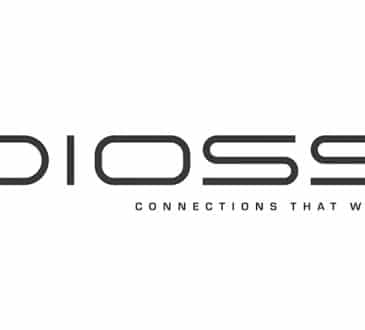4 Advantages Automation Brings to Your Business, Employees, and Customers

Automation tools can propel new opportunities in your business by freeing up employees’ time to spend on higher-value tasks. As a result, those employees feel more empowered and engaged. Learn about these advantages and other ways automation can help you take care of employees and better serve customers.
Leaders spend time talking about the value of delegation, and without a doubt, workers being willing and able to delegate tasks can free up a significant amount of their time. That new free time can be focused on activities that help fuel profitability and growth. However, delegation isn’t the only way to add more hours to your team’s workweek, and it might not be the most efficient way for them to find more time in the day. Automation can open up your workers’ schedules without just pushing tasks around.
Though automation still gets bad press occasionally (over fears that robots will take our jobs), it’s becoming a more accepted and welcome practice in businesses around the world. Why the change of heart? Employers are starting to see the benefits that come from automating mundane responsibilities.
For instance, a study commissioned by Automation Anywhere suggests that professional employees may spend about 40% of their time on repetitive manual duties. In a standard 40-hour workweek, that figure translates to 16 hours to spend on more productive work and fewer administrative tasks such as data entry. Any company would be happy if its best people had two days’ worth of time each week to focus on identifying and leveraging opportunities for adding greater value to the organization.
Along with potentially freeing up huge amounts of your team members’ time, automation provides your business with these other advantages:
- Your employees will feel more empowered.
Everyone knows that repetitive tasks can feel mind-numbing and dull. Employees who no longer have to rely on transferring information by hand may be energized by the experience. They may even find a greater sense of freedom, especially when their supervisors no longer need to micromanage their tasks or check them for human error.Employee engagement hovered around 34% in 2021, according to Gallup statistics. By taking away employees’ most uninteresting duties, you’re showing them that you believe they can do and achieve more, and you’re likelier to engage them. You can go a step further to empower your employees by offering more on-the-job development training for them to become more proficient and confident.
- Your workers won’t be as prone to burnout.
At its most basic level, automation removes some of the barriers to having a healthy, doable workload. Many employees, especially those in the early to mid-career stages, are suffering from burnout. Deloitte figures indicate that 84% of Millennial workers admit to feeling burned out at some point in their recent work lives. You can’t afford to ignore that significant majority, especially given that Millennials make up a large percentage of the working population. What happens when burnout isn’t a factor any longer at your organization? For one, your turnover and absenteeism rates should drop. Plus, the overall tenor of your cultural ecosystem will be more positive and supportive. Remember that stressed employees can’t do their best work. Even if you can automate just 10% of their regular responsibilities, you’ll be alleviating their stress levels and insulating them from the worst consequences of burnout. - Your processes will flow more smoothly.
Do you have some processes throughout your business that just seem to slow everything down? The right type of automation tools can streamline those procedures. The faster you can move projects from start to completion, the more projects you can complete.What types of workflows respond well to automation systems? Dan Gaertner, CEO at document management company DocuPhase, recommends looking at your accounting workflows, where he’s seen customers eliminate 90% of their manual data entry. “Automation provides visibility across teams and provides real-time insight into where an invoice is within the approval process, avoiding delayed approvals for payments that often occur within multi-department approval processes,” Gaertner explains. “The result is accurate and timely accounting processes that make for cleaner record-keeping.” From accounting, he suggests experimenting with automation in HR and other process-heavy departments.
- You can improve the customer experience.
The customer experience you offer is one of the biggest differentiators you have. Consumers know that, of course, which is why 73% of people surveyed by PwC said they take customer experience into consideration when making purchases. Automation can help you update and improve your customer experience in two ways. First, your people can spend the time they’ve regained through automation on providing exceptional services and support. They can go out of their way to make a grumpy customer happy or fix an error quickly. Second, automation software can assist you in gathering data and spotting important consumer trends. Staying on top of what’s trending and important for your target audiences can help you anticipate what customers need. Together, these two benefits can keep your company’s brand reputation sparkling.Automation isn’t just a technology trend that’s good to try; it’s becoming necessary to take care of your employees and better serve customers. You can bet that your competitors are at least testing the automation waters. Now is the right time to follow suit so that you don’t miss out on opportunities.
Written by Rhett Power.
Have you read?
The World’s Largest Economies, 2022.
International Financial Centers Ranking, 2022.
These are the countries with the Highest Average Salaries, 2022.
Ranked: The World’s 500 Most Populous Cities, 2022.
Countries and territories with the largest population, 2022.
Add CEOWORLD magazine to your Google News feed.
Follow CEOWORLD magazine headlines on: Google News, LinkedIn, Twitter, and Facebook.
Copyright 2024 The CEOWORLD magazine. All rights reserved. This material (and any extract from it) must not be copied, redistributed or placed on any website, without CEOWORLD magazine' prior written consent. For media queries, please contact: info@ceoworld.biz








